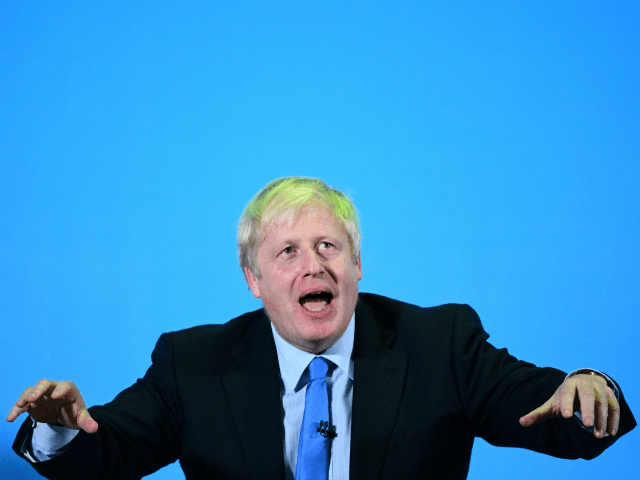Tory Party leadership frontrunner Boris Johnson refused to commit to lowering net migration to a post-Brexit Britain.
In the final leadership debate between Mr Johnson and foreign secretary Jeremy Hunt, the Leave campaigner said he was not “going to get into a numbers game” when asked about reducing immigration, in comments reported by The Telegraph.
“What I think we will have is control, which is what the people voted for and it’s high time we got it,” Mr Johnson said during the debate hosted by The Sun and talkRADIO.
That would appear to contradict comments Mr Johnson made on The Andrew Marr Show on June 5th, 2016, ahead of the EU membership referendum, in response to the BBC journalist asking him whether he wanted to see “immigration come down in this country”.
In response, the Vote Leave figure referenced the often-cited Tory government pledge to bring immigration down to the “tens of thousands”, and responded: “Yes, I do.”
Criticising the Remain campaign for failing to state how it would grapple with immigration– contributing to an NHS under pressure, crowded schools, and demands to build in the English countryside — whilst belonging to an EU with unlimited free movement, Mr Johnson continued: “I think that if you look at the figures last week, we had a net increase of 330,000 all told, 333,000, 270,000 from the EU, 184,000 net.
“A city the size of Oxford from the EU… What is their [Remainers’] programme for the country if the numbers continue at this rate? Because at the moment, if we grow the size of a city like Newcastle every year we will see our population rise inexorably to about 70 or perhaps 80 million.”
The Conservative Party had pledged in manifestos ahead of three General Elections and under two primes ministers to bring down net immigration to the “tens of thousands”, missing that target every year, in part due to uncontrolled migration from the EU’s other 27 member-states.
Figures from the Office for National Statistics (ONS) published in May found that long-term net migration continues to add to the UK’s population, with 258,000 more people moving to the UK than left last year. Over 2018, 602,000 immigrated to the UK, with over half that number, 343,000, emigrating.
While EU net migration has decreased since Britons voted to leave the bloc, in 2018 EU immigration alone accounted for 99,000 new people coming to the UK for long-term work. Non-EU migration as also been increasing since 2013, the ONS noted, while the number of skilled work visas being issued to non-EU migrants has also been increasing.
Earlier this month, Brexit Party leader Nigel Farage warned about Johnson “flip-flopping” on immigration, saying: “This is a guy who just flips and flops, says what he thinks the audience wants to hear.”
In late June Migration Watch UK’s chairman Lord Green of Deddington criticised Johnson’s proposal for an Australia-style points-based immigration system, saying: “This statement just ducks all the key issues. There is no mention whatever of reducing net migration let alone how it might be achieved. Three-quarters of the public wish to see a significant reduction in immigration, including 88% of Conservative party members. Their views deserve to be respected.”

COMMENTS
Please let us know if you're having issues with commenting.